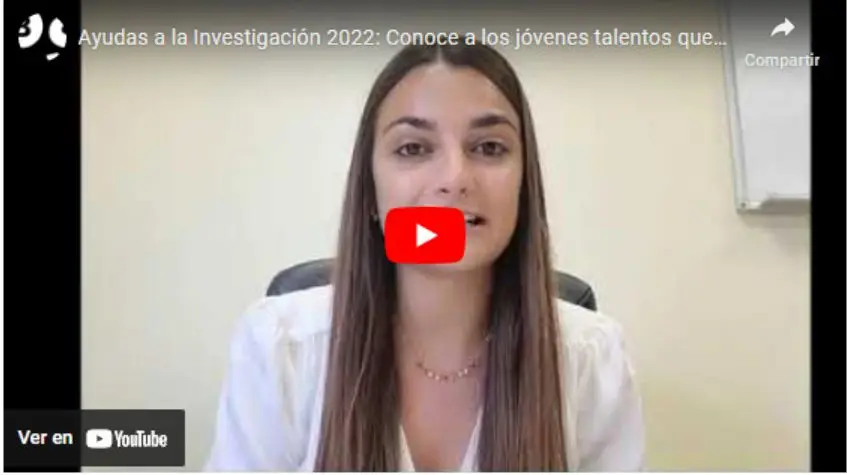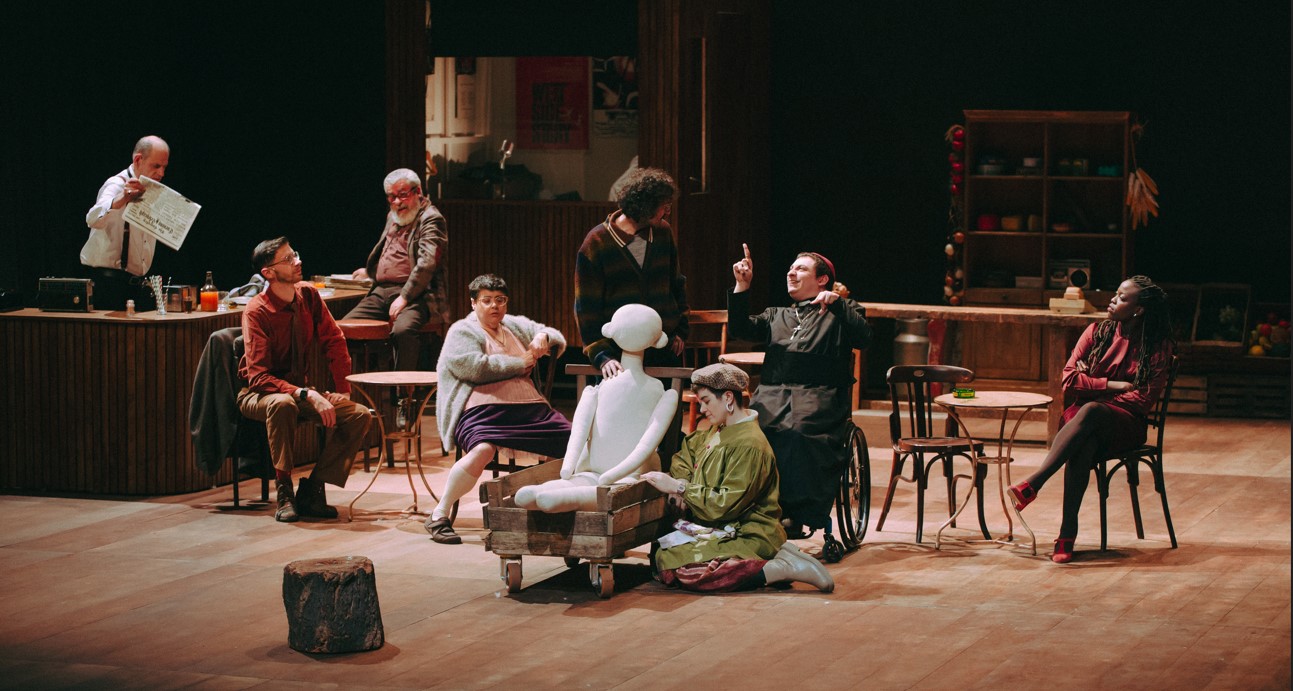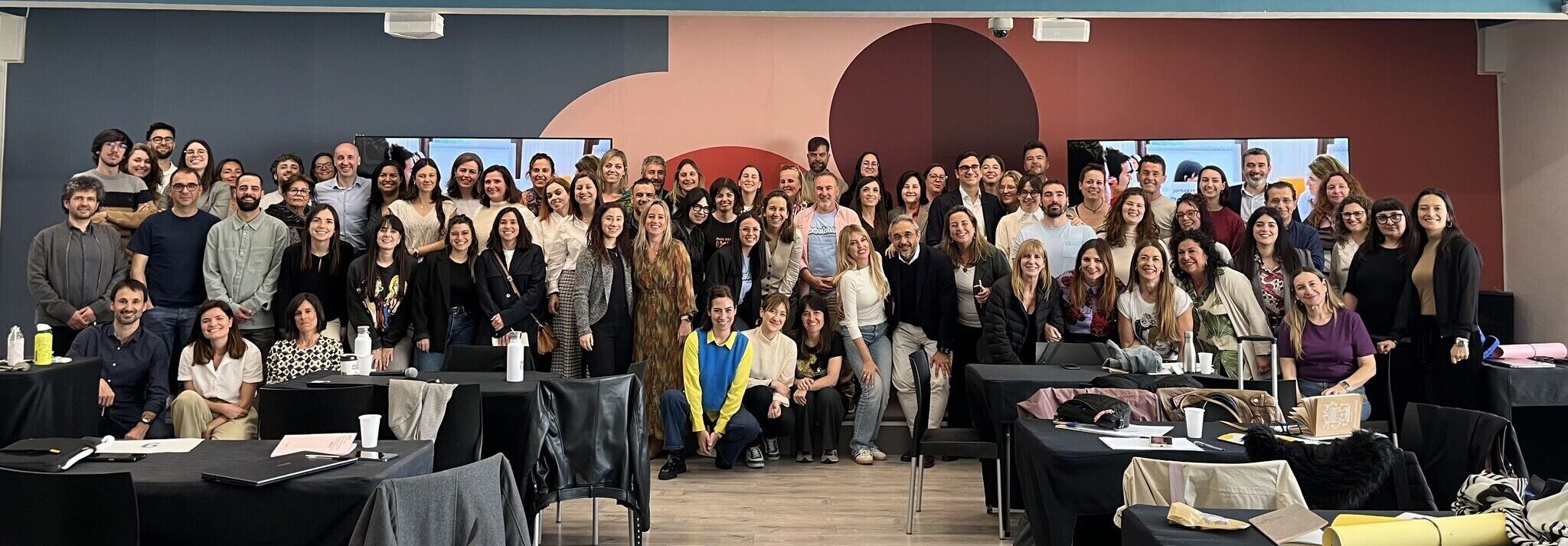
One of our main goals is to add value to society and generate a social impact through our commitment to talent. This goal is embodied by our Research Grants. These grants are aimed at Spanish researchers who are currently writing their PhD thesis, and they are intended to support and develop knowledge-building research or to fund stays at universities or research centres, preferably in the economic, business and social fields.
Each year we award 15 grants to support young people undertaking research that will help us to understand the huge cultural, economic, political or social issues of our times. Hear the testimonies of some of the young talents that have received a research grant from us in the last year and learn about their work:
This year, another 15 students received a grant to develop their research. Those selected in 2023 were:
Álvaro de Jesús Fernández – A statistical profiling model incorporating machine learning techniques for the Servei Públic d’Ocupació de Catalunya. This work builds on research carried out for a PhD on statistical profiling with new predictors, but using classical regression techniques. This new study will be possible with the help of a training period in machine learning applied to social sciences.
Ana Isabel Horcajo – Characterisation of spatial entities in Extremadura through multivariate analysis to identify areas at risk of depopulation. In recent years, territorial imbalances have become increasingly important as they can lead to difficulties in reconciling economic life with habitability in certain areas of the territory, a change that is generally more significant in rural areas.
Anna Peñuelas – Gender, communication and mobility between Panama and Costa Rica. The experience of the Ngäbe indigenous people.An analysis of temporary cross-border migration of the Ngäbe indigenous people from Panama to Costa Rica. To document this annual migration, some initial fieldwork was carried out accompanying migrant Ngäbe families during their journey. Building on this observation, a second research stay will be carried out focusing on the people who stay behind and looking at the adjustments that take place within the family as a result of the migration of other family members.
David Mier – Populism and judicial independence.A study of the relationship between the political phenomenon of populism and the courts of justice. Based on a study of dogmatism, regulations and jurisprudence, a theoretical framework is developed to understand the interactions that arise between populism and the courts, in particular, magistrates’ courts and constitutional tribunals.
María Carro – The legal regime governing marine genetic resources in areas beyond national jurisdiction. This research seeks to study the (scant) regulations existing to date, the agreement adopted by the United Nations on this matter in March 2023 and, in particular, to propose ways of developing regulations to protect these resources and the scientific advances that may be obtained from them.
Marouane Laabbas-el-Guennouni – The involvement of trade unions in environmental protection to achieve environmental improvement and the promotion of decent employment. The aim of the research is to study the participation of social agents in environmental protection, particularly in terms of the environmental policy of trade unions. This work will be carried out from a comparative perspective, examining the situation in the European Union and in the United States.
Gonzalo Preciado – From Aragón to Latvia: the “jota” and Aragonese culture in international ballets (1898-1939). This research aims to incorporate vanguard methodologies and unpublished sources which, through historical, social and cultural analysis, allow us to determine the Aragonese identity in ballet and dance of the Silver Age. This will allow a rediscovery of, among others, Mikhail Fokin’s ballet “Jota Aragonesa”, a choreography that has been lost for almost a century, which would represent a milestone in the history of dance.
Belén Català – Public policies to promote the Social Economy: co-construction process, favourable ecosystems and assessment and impact on the territory. The study seeks to describe the ecosystem model in the Valencian Community and in the region of Emilia Romagna, and to carry out an international comparison. The research will analyse the development of the social economy and its unique features, focusing on public policies that act as promoters, catalysts and prescribers, and on the barriers and success factors in both territories.
Jon Rueda – Morally disruptive technologies: A philosophical study on techno-moral change.Do technologies change human morality? Until recently, this question had not received much attention. However, the transformative impacts of technological advances on the beliefs, conduct and moral codes of our society are generating a growing body of academic literature. This research seeks to contribute to the emerging debate on techno-moral change and on morally disruptive technologies, addressing various philosophical and ethical issues.
Anna Bruch – Consumption of online pornography among adolescents: Analysis of the affective-sexual dimension and associated dynamics. The consumption of online pornography, particularly among adolescents, brings about a range of problems concerning the affective-sexual dimension of minors, although the current data remains sketchy. This research explores the relationship between both variables, with a particular focus on the forensic consequences, such as intimate partner violence or sexual violence. The aim is to generate knowledge and develop tools to prevent and intercept these problems and to address changes in the psycho-sexual development of minors.
Diego Santamaría de la Torre – Cynicism, policy preferences and life satisfaction.The research seeks to focus on the impact of beliefs about human prosociality on policy preferences and life satisfaction. By means of an experiment, different scenarios will be analysed to enhance the available evidence, extending the research carried out so far in this thesis. The stay at the ISTC will take the thesis to another level, providing new ideas and tools.
David Navarro – InteracTEA in the classroom. InteracTEA in the classroom will analyse interactions, in a secondary education classroom setting, between adolescents on the autistic spectrum and their peers and teachers. The inclusion of adolescents with autistic spectrum disorder (ASD) in mainstream educational environments can be complex, due to the difficulties they have with social interactions. A body of recordings of real classroom interactions will be created and a pragmatic analysis will be carried out, based on the theoretical current of Conversation Analysis, to examine what the most effective pragmatic strategies could be.
Dario Serrano-Puente – Essays on Public Finance. How households and businesses react to policies is currently a very relevant topic, and interest also focuses on frontier methodologies combined with the use of rich administrative microdata. This research analyses the behaviour of self-employed people in response to tax changes and how they can transfer their income to their own companies; the effects of minimum income programmes on poverty, income, social inequality, labour market inclusion and education gaps, etc.; and the effects of changes in income tax for owners of rental properties on supply, prices and income concentration.
Lucía Villaescusa – Understanding the symbolism of the Neanderthals in the Des-Cubierta Cave (Pinilla del Valle, Madrid). This research seeks to address the study of the unique archaeological record of the Des-Cubierta Cave (Pinilla del Valle), a symbolic manifestation of Homo neanderthalensis behaviour through the recurrent collection of horned animal skulls. The aim is to understand the formative history of the site from a spatial perspective, distinguish how many times the Neanderthals performed this activity and obtain a more in-depth picture of the characteristics of this behaviour. To that end, three brief stays at research centres in Spain and Portugal are planned.
Maria del Mar Esteve Güell – Implications of comprehensive urban regeneration programmes: the case of Barcelona and Paris. This research seeks to analyse the implications of comprehensive urban regeneration programmes in order to understand their effects and determine whether they are achieving their objectives. Specifically, two programmes implemented in Barcelona and Paris during the period 2015-2020 will be analysed. In addition, the research will assess whether the mechanisms in place to control their effects are sufficient to prevent negative impacts. The study will conclude with reflections on the usefulness of these programmes and on future actions to address urban inequalities.


